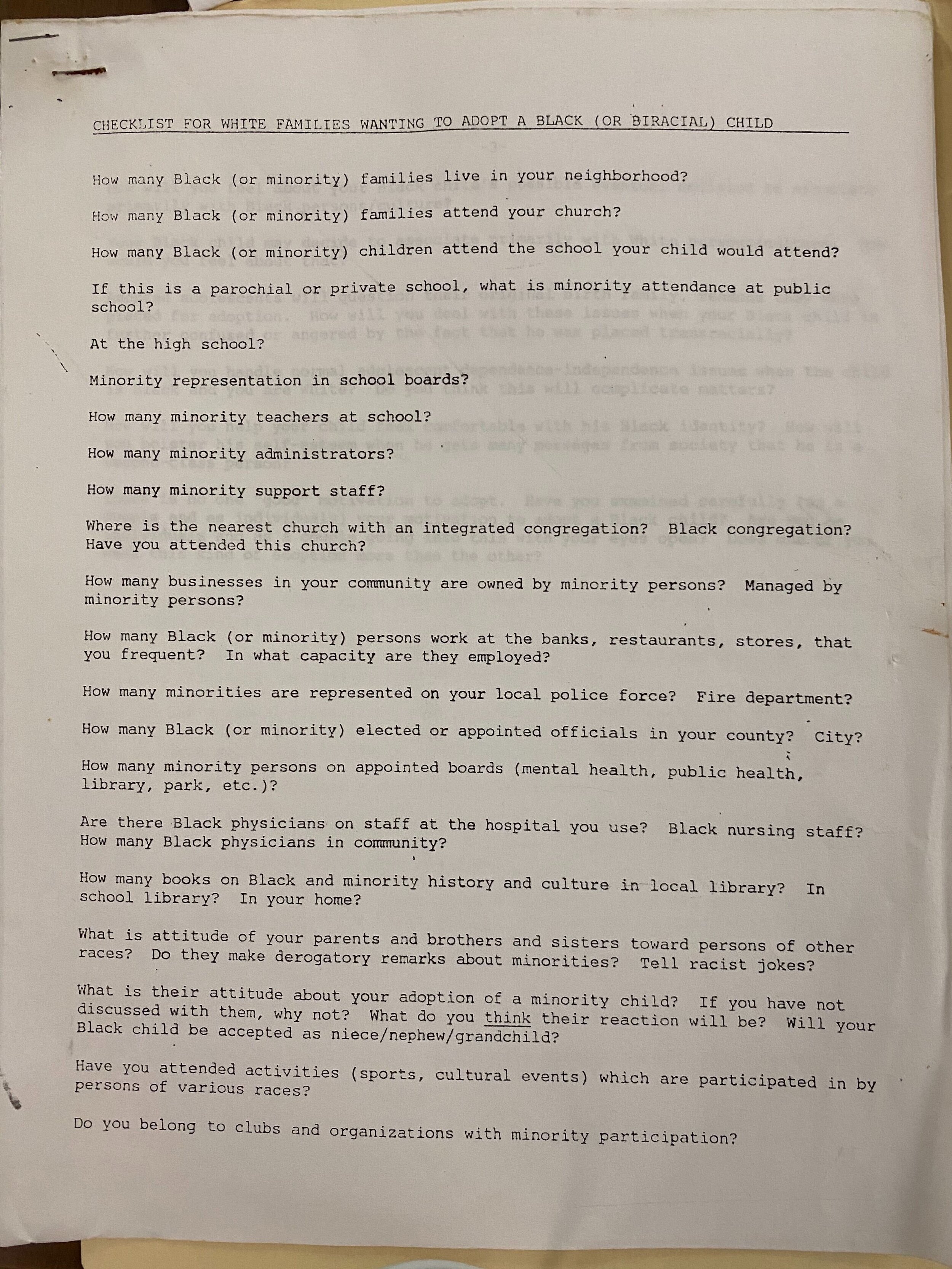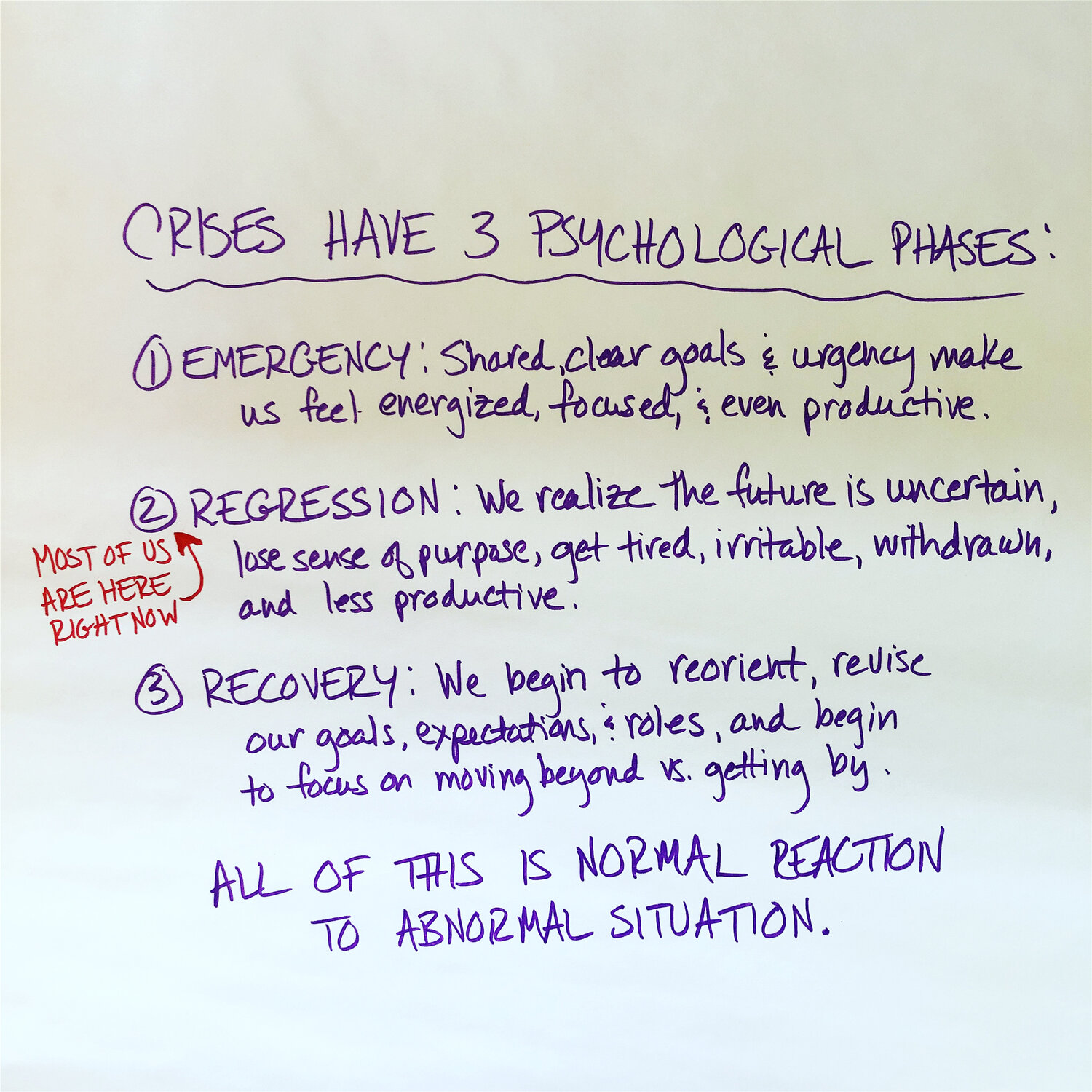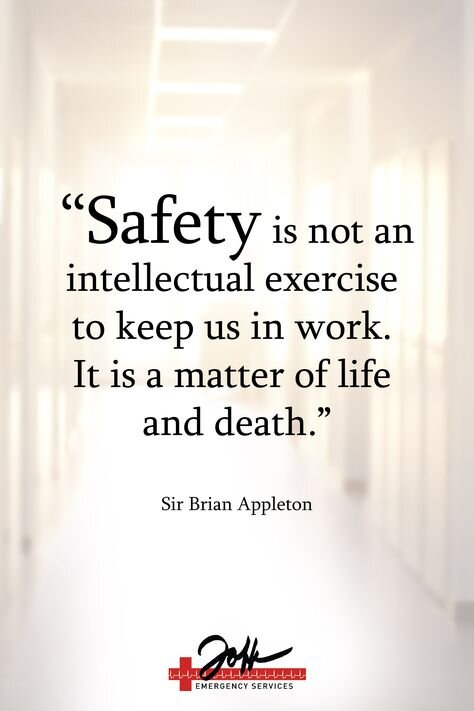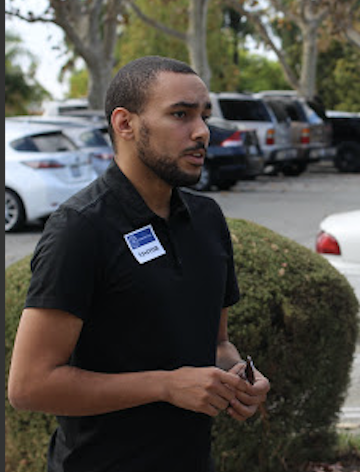Don't Call Me Black. Call Me Chris.
In the last two weeks, I’ve found myself thrust into a second worldwide event, this time surrounding the unnecessary and evil killing of George Floyd and countless others. The videos of their senseless deaths went viral and have caused a spark in conversation about police brutality, black and white relations and the like. I am grateful for that dialogue, though fearful that it will be short lived and replaced by the next national event; whatever that might be.
“And so even though we face the difficulties of today and tomorrow, I still have a dream. It is a dream deeply rooted in the American dream.”
My relationship with racism is unique and my identity as a black man is far more complex than the current dialogue holds space for. I was born a case study for racism: I was the fifth child born to a prostitute. I was removed from the home after it was determined my biological mother couldn’t care for me. I was passed around from foster home to foster home with little regard for my safety. I was in a home where other children died, in a home where children starved. I was “just another black baby turned over to the system”. I was ultimately turned over to an orphanage where I eventually met my adoptive mother (my mom as far as I’m concerned). She was (and still is) white. Before she could adopt me, she had to complete the survey below “Checklist for white families looking to adopt a black baby”. There are multiple interpretations of this and the “why” behind it. Mine is that the systemic racism runs so deeply in our country that this was an attempt to keep white families white and black families black. I was lucky, my mom was a fighter and she endured the obstacles and got to raise me. (Saying it like that makes it sound like the privilege was hers, but I assure you, the privilege was mine).

Growing up, I had a few encounters with the police, some of which were at my own behest and others at theirs. I was once cited for not wearing a helmet while biking (BWB for short). I was among many bikers on the street without helmets, but I was singled out. I was busted for curfew. I was called to the mat for my fake ID and more. Again, not all were the fault of systemic racism. Some were me being a dumb kid. While some of these experiences were more challenging, some just occurred because I was black, these were my experiences.
I went on to join Emergency Medical Services and started riding ambulances and taking care of sick folks from all walks of life. In that experience, on more than one occasion, a police officer helped me, saved me, or spared me. I’m now an emergency manager supporting schools in the response to all hazards including active shooters. The police are my teammates when responding to some of the most gruesome scenes one would ever imagine.
Last week, a store across the street from my home in Santa Monica was looted. The next day, I walked outside my house to get a breath of fresh air and was greeted by 200+ officers “keeping our city safe”, some of whom pointed their weapons at me as I walked out my own front gate.
“The marvelous new militancy which has engulfed the Negro community must not lead us to a distrust of all white people, for many of our white brothers [and sisters], as evidenced by their presence here today, have come to realize that their destiny is tied up with our destiny. And they have come to realize that their freedom is inextricably bound to our freedom.”
I believe as long as you call me black, as long as you call me different, you’ll be able to insulate yourself from my experience no matter how horrific.
I believe as long as we call them cops, we’ll be able to hate who they are and what they stand for carte blanche.
I believe that we just had this conversation about treating women with respect; about treating people of different sexualities with respect.
I believe that as long as we continue to neatly categorize people into boxes that make them different from us, we’ll never overcome the real challenge which is that all people deserve to be treated as people.
“And those who hope that the Negro needed to blow off steam and will now be content will have a rude awakening if the nation returns to business as usual.”
I believe that it’s acutely easy right now to talk about racism and this social divide. Just as it was easy a few years ago to talk about treating women with respect. Just as it was easy a few years before that to talk about treating people of different sexualities with respect. I believe it’s easy when it’s “socially normative” to go out and protest for the downtrodden. It’s fundamentally more difficult to have that same energy though, when you’re not one in a million out there protesting. When it feels like you might be the only one still fighting. I appreciate the marchers that are out there demanding change today and I hope something comes of it. I know all too well, though, that we run the risk of being on our own again in a few months or years.
My ask of you is that we expand this conversation to be about more than blacks vs. whites or blacks vs. cops. Instead, my ask of you is that we as a people commit to treating all people as people. That through that united effort we might sustain our focus for long enough to cause real change. That through that effort we might realize that we’re not so different after all.
You see, I’m part white, part black, part I don’t even know -- my birth father paid cash -- so I am uniquely able to see, feel, hear, and understand, first hand the different communities of which I am a member.
Systemic racism almost prevented me from being with you today, but my mom’s willingness to fight through it gives me hope that we can and in fact we shall overcome not just that, but the systemic discrimination of any person. Let’s systemically unite and eliminate these differences.
When you call me black, you rob me of my complex experience with race and you lump me into a category of people which to you represents a specific way of thinking, culture, community, etc. The color of my skin does not inherently mark the content of my character. The color of my skin is a fraction of who I am.
So, don’t call me black unless you intend to insulate yourself from me or cheaply align yourself to me. Instead, call me Chris. I’ll call you by your name. Let’s get to know one another; I suspect we’re not so different after all.
“We cannot walk alone. And as we walk, we must make the pledge that we shall always march ahead. We cannot turn back.”



